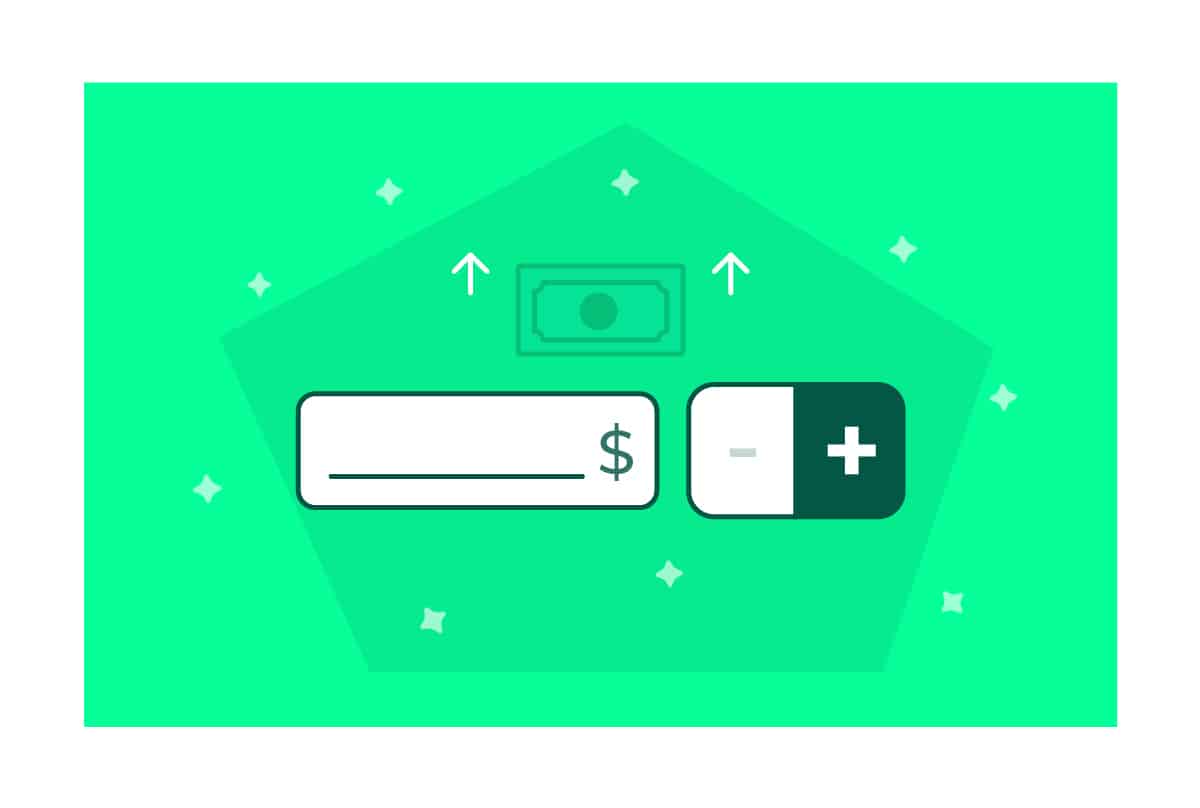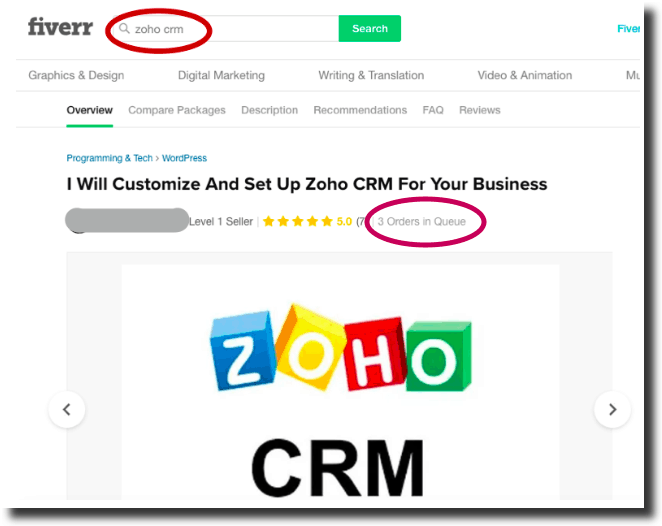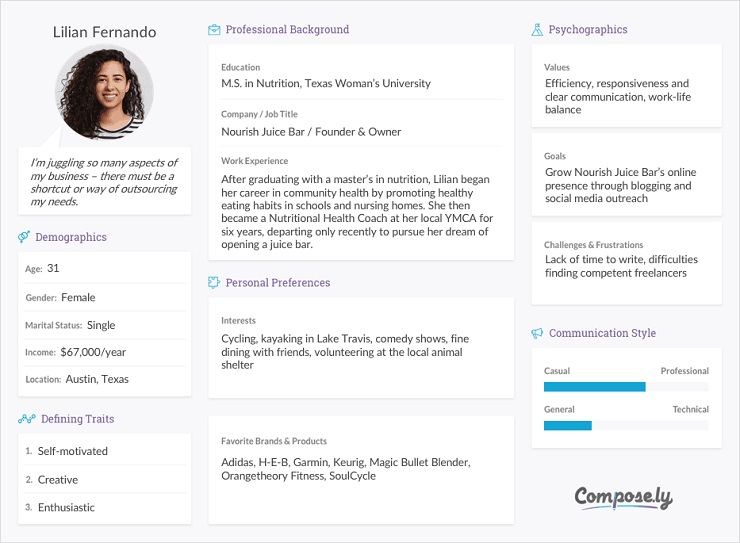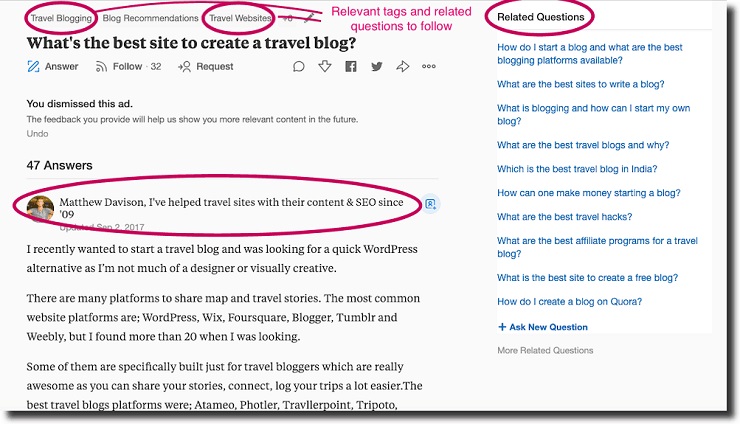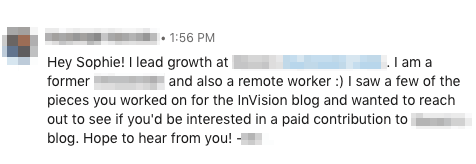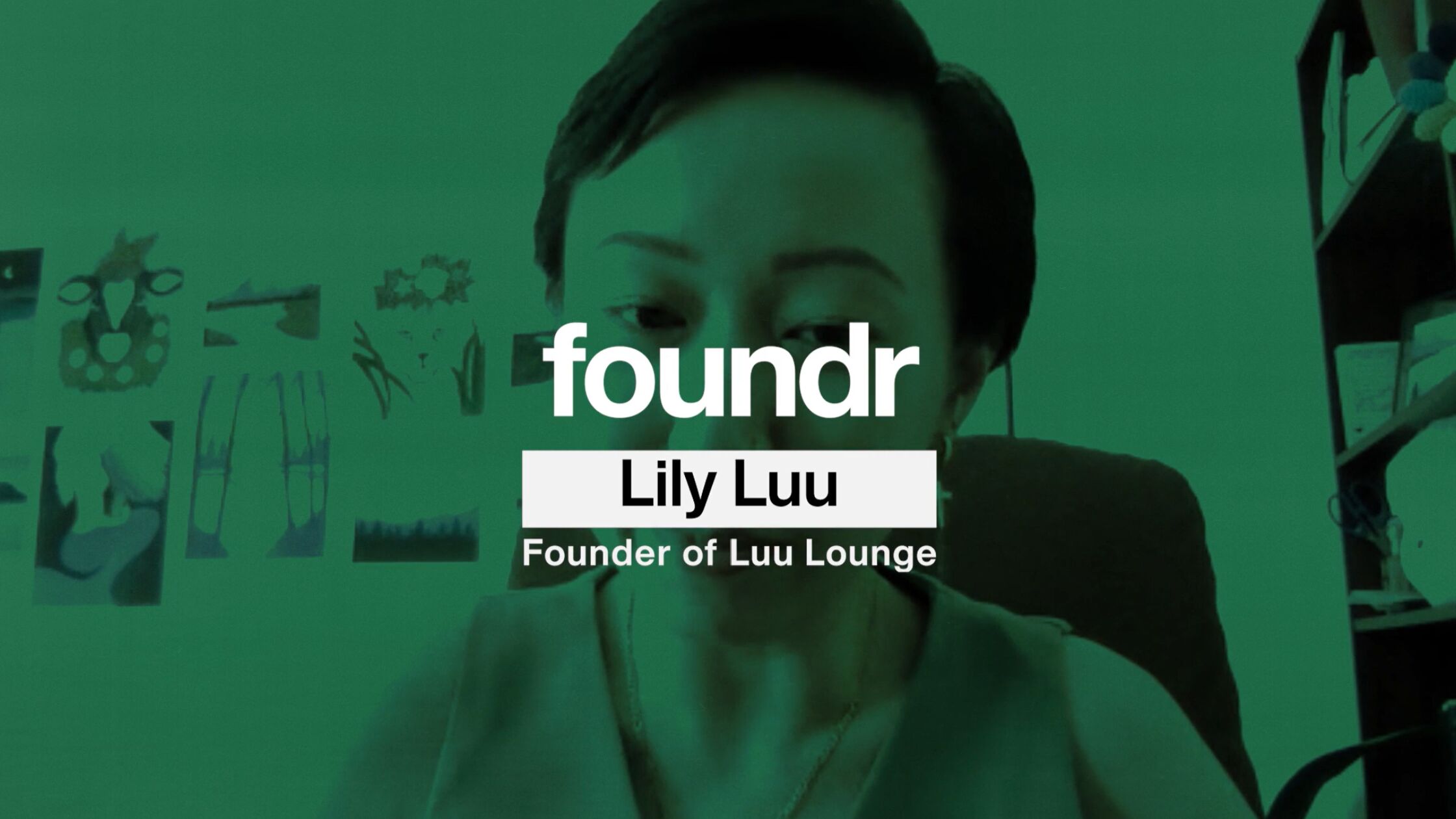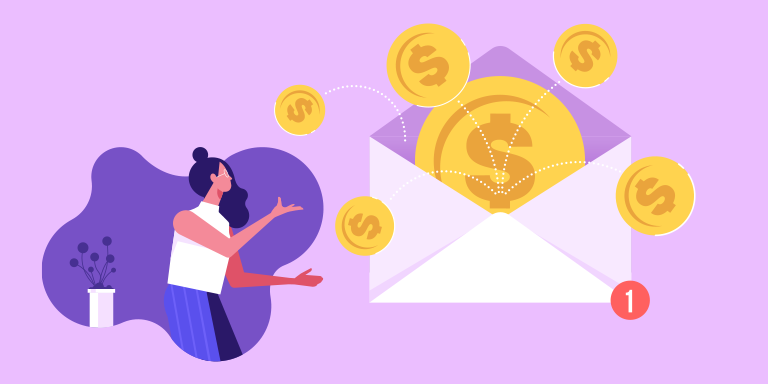As a freelancer, you’re selling your time and expertise. So if you’re maxing out all of your available time with client work, you’re making as much money as you can, right?
Not by a longshot.
Maybe you’re literally not able to take on any more work, but that doesn’t mean you’ve reached the peak of your earning potential. You can definitely make more money, and you won’t need to give up creative control by outsourcing your work to cheaper providers to do it.
You’ll need to attract higher value clients.
You’ll need to stop doing $100 an hour gigs and start doing $10,000 projects.
You’ll need to break into markets that are more lucrative.
It won’t happen overnight, but if you follow the process outlined here, over time you’ll be able to:
- land more long-term clients (the most profitable kind);
- get more referrals for high-value clients (the easiest way to land new jobs); and
- command higher prices for each job (the quickest way to make more money).
Let’s get to it.
How to Make More Money as a Freelancer
Step 1: Become a Specialist
When you were starting out as a freelancer, you probably felt like you needed to be able to work in a variety of industries and offer a huge range of services in order to attract enough clients.
You weren’t just a freelance writer. You were a freelance writer who did website copy, blog articles, speech-writing, video games, real estate descriptions, and, well, basically anything that paid.
That might be a good tactic when you’re starting out and just need to get enough work to pay the bills.
But when you’re looking to up your freelancing game and start working in more profitable markets, you need to stop being something to everyone and start being everything to someone.
What does that mean?
It means don’t be sort of good at every kind of service and sort of know about every industry. Be so great at one service and so knowledgeable in one industry that your target audience can’t pass you by. Or, to quote Steve Martin, simply “be so good they can’t ignore you.”
For example, you might be that freelance writer who specializes in writing conversion copy for real estate companies.
Freelancer Valerie Haboush has tailored her website and marketing materials to her target audience—real estate companies.
Why is it better to be a specialist?
People are willing to pay more for expertise than competence or even skill.
If your client is a real estate company looking for a new landing page, they might trawl through tons of applications or freelance profiles before they decide on a candidate. Imagine their surprise when they come across your profile. Not only are you a pro at the kind of copy they need, you’re even a specialist in their industry.
No doubt they’ll be willing to pay more to use you because you know exactly what they need and can get it right, straight away.
Being a specialist also helps you get better at what you do—an essential step toward making more money as a freelancer.
Having written tons of conversion copy for real estate companies, you’ll have seen what works and what doesn’t. You’ll know the competitors like the back of your hand. You’ll have specific examples of how your work has helped similar companies.
It’s much easier to sell your work to new companies once you have all of this in your arsenal. And since you already know about the industry, you’ll be able to work faster, meaning you spend less time on each project and have more time to spend on additional money-making activities.
On top of that, once you’re a specialist, you can start to hone in on your target audience. You’ll have direction. You’ll know who to reach out to, which events to attend, which forums to join. People will start to know who to refer work to when they hear someone is looking for help.
Let’s say you want to be a WordPress developer. … Don’t be a WordPress developer. Be a WordPress developer who builds out WordPress themes for blogger moms. Now you know who your audience is.
– Jeremy Noronha, The Six Figure Freelancer Audio Course
EXCLUSIVE FREE TRAINING: Successful Founders Teach You How to Start and Grow an Online Business
What do I choose as a speciality?
So choosing a specialty is important: but how do you choose one? Consider some of the following questions:
- What work do you enjoy the most? What’s something you’ve been working on and found that the job was done before you knew it?
- What projects have you achieved the best results on? Look for specific, measurable outcomes that the client received as a result of your work.
- Which areas do you have some kind of knowledge or experience in? This could be through personal experience, something you studied in the past, or previous professional experience.
- Is there demand for the kind of work you’d like to do? Have you been able to find similar work before? Are other people out there marketing those services on freelance platforms? Is there search volume on Google for related terms? (You can use a tool like Keywords Everywhere for a quick suggestion of search volume.)
You may want to take a look at sites like Fiverr to see if others are offering gigs that are similar to the type of service you intend to provide. Check how many reviews there are on relevant gigs to get an idea of the level of demand.
If you can hit on something that you’re passionate about, that you know there’s a market for, and that you’re good at, you’ve found a specialty.
There’s one more point to consider if you’re looking to make more money as a freelancer, and that is: How much can your market afford to pay? It’s all well and good to become a specialist in marketing for early-stage solopreneurs, but there’s little chance that solopreneurs who are just starting out will be able to afford the kind of fee you’re looking to draw.
If increasing your profit margins is your ultimate goal, you might be better off doing marketing for Fortune 500 companies, or a subset of those.
Keep in mind that you don’t necessarily need to be a ready-made expert in your chosen niche. In many cases, there will be online resources available that you can use to get better at the service you want to provide. Find a few ways to keep up with industry news to help you get to know the audience that you’re servicing and any current trends, as well as companies you wish to target.
Step 2: Find Your Target Clients
Now that you’ve chosen what to specialize in, you can build out a detailed target audience persona to determine who your perfect clients are, and how to find them.
What is a target audience persona?
A target audience persona is a fictional example of your ideal client, informed by data. Instead of thinking about the range of demographics and behavioral tendencies that could cover your entire target audience, use one specific person to represent what you know about your audience.
Having a persona makes it much easier to imagine walking in your audience’s shoes, and to speak specifically to their goals and challenges.
Invent a specific person who you can imagine when you think about your target audience. If we’re sticking with the real estate example, maybe it’s Rob, co-founder of a Real Estate App. Imagine what he looks like, what he wears, what kind of coffee he drinks. This might sound like unnecessary information, but when you’re thinking about how to market to your audience, being able to conjure up a quick image of Rob will help you get straight into the tone of voice you need to use to speak to him.
How do you create a target audience persona?
Start by writing down everything you know (or can find through research) about your target audience, like:
Demographic Information
- Gender
- Location
- Age
- Marital status
Professional Information
- Education
- Job title
- Job function
- Team size
- Income
Social Information
- Which publications do they read?
- What social platforms do they use most?
- Where do they spend their time? Are there specific online forums, Slack groups or in-person Meetups they’re likely to be at? (Hint: there are)
Psychological Information
- What are their values?
- What’s their number one goal?
- What are their pain points?
- What keeps them up at night?
Where You Come In
- What problem can you solve for them?
- What can they gain by choosing you (instead of your competition)?
- What objections might they have to using your service?
- What outcomes can you provide and how do these relate to their goals?
If you’re having trouble with this, think about some of your previous customers.
What qualities did they have? Why did they reach out to you? Why did they hire you?
You might end up with something similar to this example:
It’s a good idea to create a “mission statement” for your persona, like Composely has done in this example.
Finding your target clients
Now that you know a lot about your target audience, you can set out to find them. You’ll already know where they tend to spend their time, so start to be where they are.
For example, if you’re an SEO marketer who wants to focus on the travel industry, rather than spending your time in SEO groups and channels, join travel blogger Facebook groups or Slack channels, and follow Quora threads on topics related to travel bloggers. Ensure you’re seen answering questions and providing value.
Answering Quora questions around topics your niche is interested in can be a good way to get seen by your audience.
Factoring this kind of work into your weekly schedule will help you ensure you always have clients coming in. Don’t wait until you need new work to start getting out there—because then it’s already too late. Good freelancers who have escaped the all-too-common feast or famine cycle know that their inbound pipeline needs to be consistently healthy so that they have the luxury of choosing the right gigs.
EXCLUSIVE FREE TRAINING: Successful Founders Teach You How to Start and Grow an Online Business
Step 3: Communicate Your Value
Once you know who your audience is and where they spend their time, you need to convince them that you’re the person for the job. By indicating you’re a specialist you already become more attractive to your market, but here are some other ways you can show your worth as you go through various stages of attracting clients.
Interactions with your target market
I mentioned earlier that you should start to be where your target market is. Providing value can start right there. Even if you’re not sure that it’s going to result in some kind of work, freely answering questions in detail shows others in the niche that you’re a professional who knows what you’re doing and is valuable to the community.
Build genuine relationships with people in your target audience—you never know where they can lead you. According to a report by Paypal, word of mouth accounts for 43% of freelancer’s work assignments, and this increases over time, playing a larger role for those who have freelanced for 11 years or more.
You can also use your website or social media channels as platforms for demonstrating your specialty, by sharing content that’s helpful to your target market.
Leah Presser describes herself as a Legal Tech Marketing Copywriter on Twitter, and shares content that’s relevant to her niche to help provide value.
“Machine learning doesn’t ‘understand’ anything – it just looks for patterns in numbers.” This is why #LegalTech education is so critical! #Attorneys who know how AI “thinks” can better spot the effects of its shortcomings.
Notes on AI Bias https://t.co/PfRMWcZQBO pic.twitter.com/4qMqz6qaL8— Leah Presser, LegalTech Marketing Copywriter (@leahpresser) April 19, 2019
Look for opportunities to publish on the platforms your target audience visits. Since I started writing about remote work, I’ve had several people reach out to me after reading a guest post that I wrote for another website’s blog. Here’s one example:
Some of the LinkedIn messages I’ve received referencing my guest posts have turned into work opportunities, others have simply turned into mutually beneficial relationships between two professionals interested in the same topics.
Marketing materials
Use your target audience persona to write your website copy and marketing materials. Consider what your persona wants to achieve and show them how you can help them do that.
Start with something as simple as this statement:
creates for so they can .
For our real estate copywriter, this could look something like this:
Property Promotions creates high-converting landing pages for real estate professionals, so they can sell more properties, faster.
Be sure to showcase examples from your previous clients to demonstrate the potential results of your work. Share logos from your previous clients that best fit your niche, quotes from happy clients, and specific numbers that show the results you achieved for them.
Rob, a SAAS copywriter, uses his website to share examples of his previous work and the results it achieved, as well as social proof in the form of quotes from previous clients.
Pitching to clients
The way you communicate your value should continue into your pitches to clients. If you’re reaching out to potential clients via email or social media, make sure you include both social proof and examples of what you can offer them.
Tricia Mool’s Twitter outreach includes examples of her previous clients as well as mention of how her location and industry contacts can be beneficial for the client.
This carries into your proposal discussions, where rather than just talking about what you can do, you should talk about why the client needs your services by demonstrating the kinds of results they can anticipate.
The way you price yourself has to have roots in what you’re able to achieve on a tangible results level — not just what you feel you can do because you’re in a good mood that day.
So ask yourself:
What proven results do you get for your clients?
– Hillary Weiss, Medium
EXCLUSIVE FREE TRAINING: Successful Founders Teach You How to Start and Grow an Online Business
The Final Step: Do Great Work
Now you know how to attract and close more profitable gigs, but that’s just the beginning. The most crucial step in making more money as a freelancer is, of course, to do great work. You need to be able to demonstrate that you were well worth the money to the client.
Continuously strive to get better at what you do through training, reading, and keeping an eye on your results, and you’ll find that not only can you attract more of the right kind of clients, but they’ll return to you when they need someone who can provide your services again.
What’s your freelance specialty, and has it paid off? What’s your biggest money challenge as a freelancer? Let us know in the comments below.
